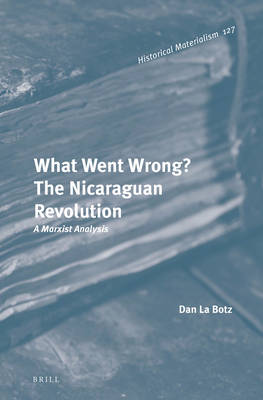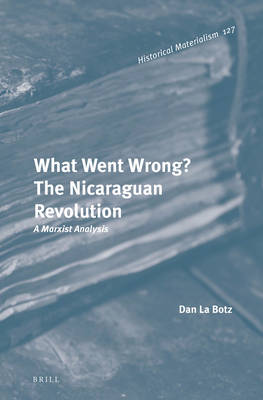
- Afhalen na 1 uur in een winkel met voorraad
- Gratis thuislevering in België vanaf € 30
- Ruim aanbod met 7 miljoen producten
- Afhalen na 1 uur in een winkel met voorraad
- Gratis thuislevering in België vanaf € 30
- Ruim aanbod met 7 miljoen producten
Zoeken
€ 296,45
+ 592 punten
Uitvoering
Omschrijving
This volume is a valuable re-assessment of the Nicaraguan Revolution by a Marxist historian of Latin American political history. It shows that the FSLN ('the Sandinistas'), with politics principally shaped by Soviet and Cuban Communism, never had a commitment to genuine democracy either within the revolutionary movement or within society at large; that the FSLN's lack of commitment to democracy was a key factor in the way that revolution was betrayed from the 1970s to the 1990s; and that the FSLN's lack of rank-and-file democracy left all decision-making to the National Directorate and ultimately placed that power in the hands of Daniel Ortega. Pursuing his narrative into the present, La Botz shows that, once their would-be bureaucratic ruling class project was defeated, Ortega and the FSLN leadership turned to an alliance with the capitalist class.
Specificaties
Betrokkenen
- Auteur(s):
- Uitgeverij:
Inhoud
- Aantal bladzijden:
- 432
- Taal:
- Engels
- Reeks:
- Reeksnummer:
- nr. 127
Eigenschappen
- Productcode (EAN):
- 9789004291300
- Verschijningsdatum:
- 15/09/2016
- Uitvoering:
- Hardcover
- Formaat:
- Genaaid
- Afmetingen:
- 157 mm x 236 mm
- Gewicht:
- 725 g

Alleen bij Standaard Boekhandel
+ 592 punten op je klantenkaart van Standaard Boekhandel
Beoordelingen
We publiceren alleen reviews die voldoen aan de voorwaarden voor reviews. Bekijk onze voorwaarden voor reviews.








